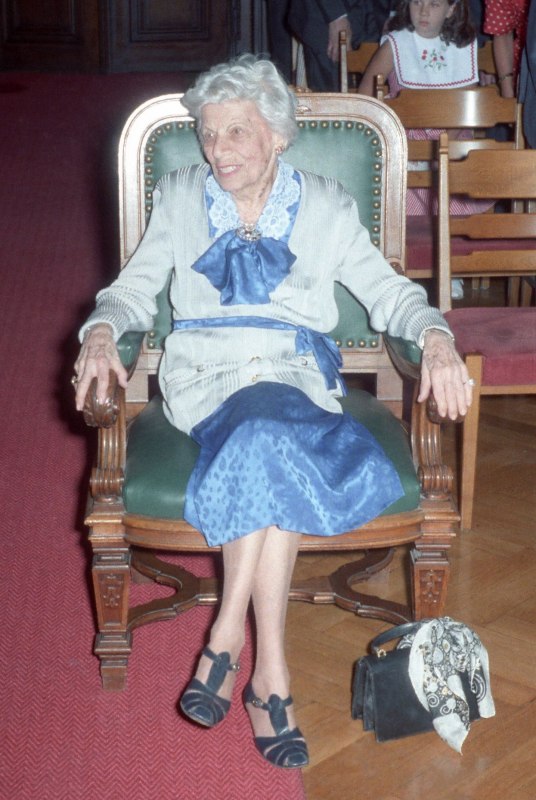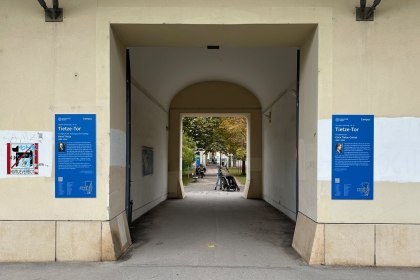Martha Stephanie (Steffy) Browne (Braun), Prof. Dr.
Honors
| Ehrung | Titel | Datierung | Fakultät | |
|---|---|---|---|---|
| Honorary Doctorate | Dr. rer. soc. oec. h.c. | 1988/89 | Faculty of Economics and Social Sciences |
|
| Gate of Remembrance | Browne-Tor | 1998/99 |
|
- Political Sciences
- Faculty of Law and State
Martha Stephanie Browne (Braun) was born in 1898 as the daughter of the Viennese pediatrician Adolf Herrmann. After passing both the school-leaving examination (1915) and the Realgymnasialmatura (1917), she began studying at the University of Vienna. She enrolled in lectures at the Faculty of Philosophy and the Faculty of Law and Political Science. She became a "working student", not for material reasons, but to familiarize herself with practical work as early as possible. From 1918 to 1919, she worked at the Kriegs-Getreide-Anstalt in the statistical and scientific department. She spent the winter semester of 1919/20 as a student at the University of Freiburg im Breisgau. She then returned to the University of Vienna and was one of the first graduates to complete her studies in political science, which had been newly introduced after the First World War, with a doctorate in 1921. Her dissertation was on "The Instruction Theory of Money", which she had written under the guidance of the national economist Ludwig von Mises. The fourth generation of the Austrian School of Economics gathered in his seminar; alongside Martha Stephanie Braun, for example, Gottfried Haberler and the later Nobel Prize winner Friedrich A. Hayek. Braun's teachers also included Max Weber, who taught at the University of Vienna in 1918, and Friedrich Wieser, who assessed her dissertation alongside Othmar Spann. After her marriage and the birth of her first child, Martha Stephanie Braun was given a job at the Vienna Chamber of Commerce. In 1929, she published a work that established her academic reputation worldwide: "Theory of State Economic Policy". This work is considered a pioneering achievement and the founding work of the then emerging theory of general economic policy. The author intended to habilitate at the University of Vienna with this work, but as a woman and a Jew she failed due to the prevailing prejudices. When the National Socialists came to power, she was forced to emigrate to the United States with her children and husband. She changed her name to Browne and, after a difficult initial phase, was able to continue her scientific work as an economic analyst on behalf of the State Department (1944-1947). She gained a reputation as an expert on the Japanese economy - she had already predicted Japan's imminent recovery shortly after the war - and on energy supply issues. From 1947 to 1969, she worked as a professor at Brooklyn College in New York and, after her retirement, as a visiting professor at New York University. In 1989, she was awarded an honorary doctorate in social and economic sciences at the University of Vienna.
A "Gate of Remembrance" on the campus of the University of Vienna has been named after her since 1998 (Browne Gate, passageway between courtyard 3 and courtyard 6)
Archive of the University of Vienna: juridical viva voce records ("Rigorosenakt") 5; Senate Act on the award of an honorary doctorate (application with appreciation of Erich Streissler, 1988); Die Presse of 17/18 1990
Zuletzt aktualisiert am 02/29/24


